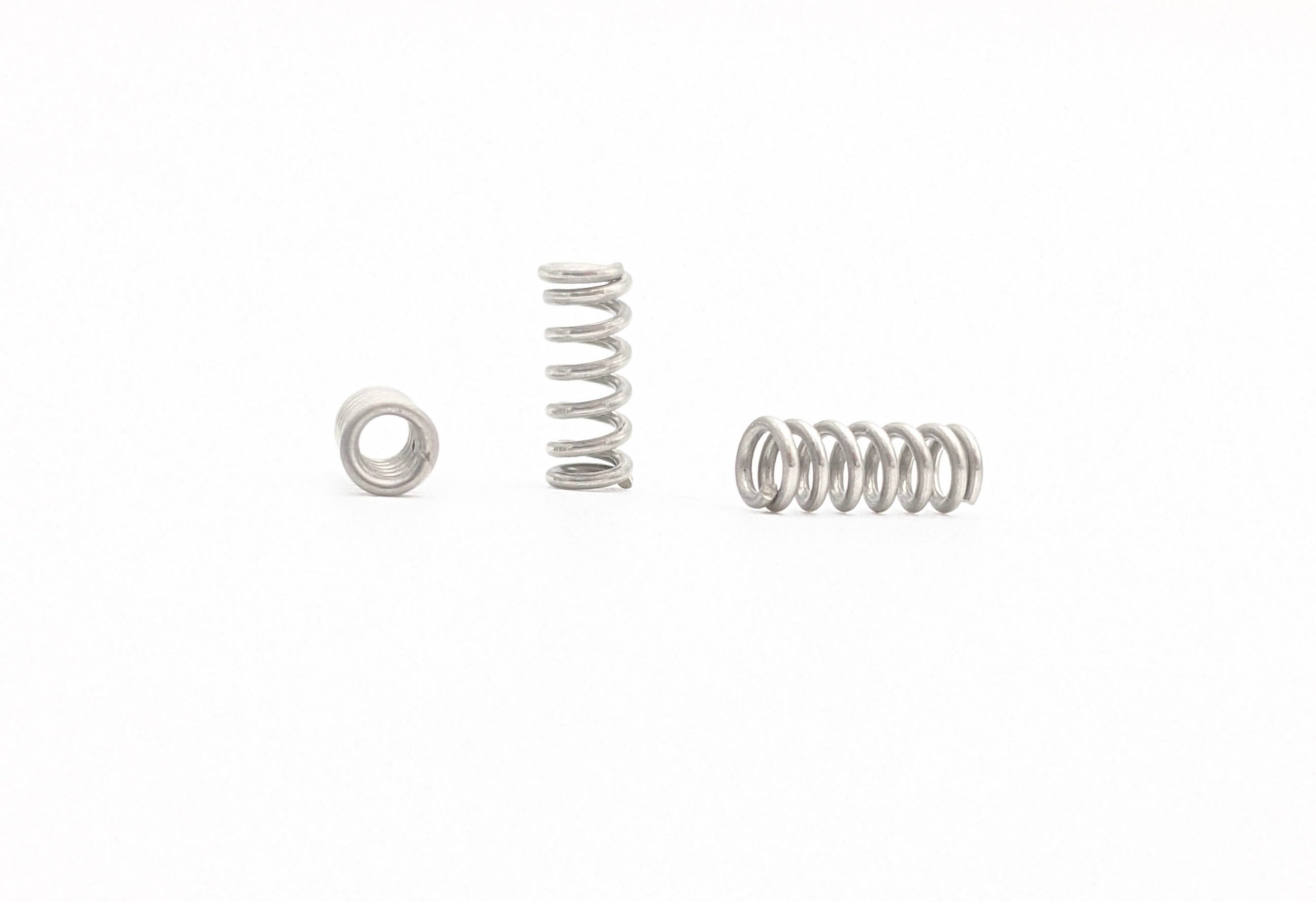Get unique, complex parts easily. No matter your requirements, Chaoyi Spring creates hard-to-produce coil springs and wire forms.
Let us help you create the custom wire form you need, from S-hooks and J-hooks to utility hooks and more.
We work closely with customers across a wide range of industries, helping them design and manufacture made-to-order parts.
Why choose Chaoyi Spring? We prioritize customer-focused collaboration, modern equipment and the latest technology to make your parts per print.
Find the information and guidance you need, from measuring a spring to learning about materials, placing an order and much more.
Compression springs, those ubiquitous coiled wonders, are often overlooked in our daily lives. From the simple act of opening a pen to the complex workings of a car engine, compression


Compression springs, those ubiquitous coiled wonders, are often overlooked in our daily lives. From the simple act of opening a pen to the complex workings of a car engine, compression springs play a crucial role in countless applications. These seemingly unassuming components are responsible for storing and releasing energy, providing support, and ensuring smooth operation in a wide range of devices. Let's delve into the world of compression springs and uncover the fascinating science behind these indispensable mechanical elements.

Compression springs, as the name suggests, are designed to resist compression forces. Imagine squeezing a coiled wire; the force you apply compresses the spring, and the spring pushes back with equal and opposite force. This ability to store and release energy makes compression springs incredibly versatile.
The behavior of a compression spring is governed by a fundamental principle known as Hooke's Law. This law states that the force exerted by a spring is directly proportional to its displacement from its equilibrium position. In simpler terms, the more you compress a spring, the greater the force it will exert to return to its original shape.
The spring rate, often denoted by the letter 'k', is a crucial characteristic that defines the stiffness of a compression spring. It represents the force required to compress the spring by a specific distance. A high spring rate indicates a stiffer spring, while a low spring rate indicates a more flexible spring.
Compression springs are typically manufactured from high-quality spring steel, known for its resilience and resistance to fatigue. The choice of material depends on the application and the required performance characteristics. For example, if corrosion resistance is a concern, materials like phosphor bronze or titanium may be used.
Compression springs come in various shapes and configurations, tailored to specific applications. Some common types include:
These are the most common type of compression spring, consisting of a helical coil of wire. They are versatile and can be found in countless everyday objects.
These springs resist twisting forces. Imagine a spring that you rotate; as you twist it, it stores energy and exerts a torque in the opposite direction.
These springs have a spring rate that varies as the spring is compressed. This allows for a more nuanced response to varying loads.
Compression springs are the unsung heroes of countless applications. Their versatility makes them indispensable in various industries, from automotive and aerospace to consumer products and medical devices. Here are a few examples:
Compression springs are essential for suspension systems, providing the rebound force that keeps the vehicle stable on uneven roads. They also play crucial roles in shock absorbers, clutch systems, and valve mechanisms.
From the simple click of a ballpoint pen to the smooth operation of a clothes dryer, compression springs are ubiquitous in consumer products. They are used in pens, toys, furniture, and countless other items.
Compression springs are used in various medical devices, including surgical instruments, prosthetics, and medical equipment. Their reliability and precision make them ideal for applications where accuracy and safety are paramount.
Selecting the right compression spring for a specific application requires careful consideration of various factors, including:
The spring rate determines the force required to compress the spring. This is crucial for ensuring proper operation and performance.
The maximum load the spring can handle without deformation or failure is essential to consider.
The choice of material depends on the application's environmental conditions and the required performance characteristics.
The spring's size and shape must be compatible with the available space and the intended application.
Compression springs, despite their seemingly simple design, are marvels of engineering. Their ability to store and release energy, providing support and ensuring smooth operation, makes them indispensable components in various industries. Whether it's the click of a pen or the stability of a car, compression springs are silently working behind the scenes, making our lives easier and more efficient.
So, the next time you encounter a compression spring, take a moment to appreciate its role in our daily lives. These unassuming components are the backbone of countless technologies and contribute to the smooth functioning of our world.
Browse some of the custom wire forms and springs that we manufacture. Don’t see what you need? We specialize in made-to-order products that meet your application requirements.
Visit Our GalleryNeed a custom wire form or coil spring? We make it work. Fill out the contact form and a representative will respond within 1 business day. If you have a PDF or CAD file, you can submit to request a quote.